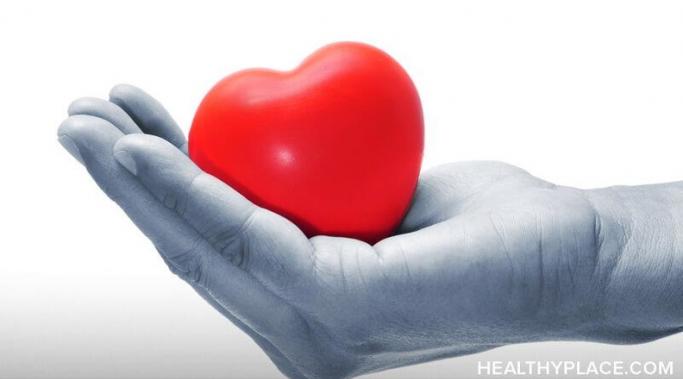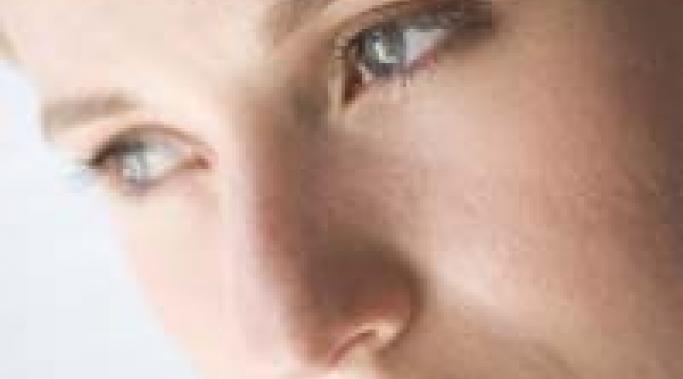Blogs
I came up with this topic when I was in a state of serious depression--less than a month ago. I was certain I would never become well. Those of you who live with a mental illness understand this on a very deep and personal level.
While I was glued to the couch I started thinking about how much time I spend exhausted--some days less and some more. Mental exhaustion and physical (or both) can define a large part of our lives.
Without further explanation (coffee in hand) let's explore this topic.
When I took over this eating disorder blog, I did so with two purposes in mind. First, to offer support to those who are also in recovery from their own eating disorders and educate them on how to make their recovery stronger. Second, to help the friends and family of those with eating disorders better understand what their loved one is going through. I think to this point, I have done a decent job on the first purpose. However, my own fear of "too much" self-disclosure has kept me from accomplishing the second.
To be honest, it's hard to put into words just what kind of hell living with an eating disorder is. Especially in the midst of it, when your head is spinning and words seem difficult to grasp. As a result, most of my writings from my worst days of my eating disorder seem to ramble and go off on tangents and almost always ended with the conclusion that I wasn't really sick, I was just crazy and I should just kill myself for being such an attention-seeker.
OK, maybe it seems like I’m being a bit hard on commenters. I swear I’m not. I like people who comment and express their opinion, but sometimes their opinion spurs one of my own. This is one such comment:
I’m bipolar, and I think we ALL should have to take a Dialectal Behavior Therapy course. The DBT course helps with coping skills, year class, and helps . . . these skills work if you want them too.
Here’s someone singing the praises of dialectical behavior therapy (DBT). She would certainly not be alone as many people find DBT to be helpful. The problem I have with this comment is the last bit, “these skills work if you want them too [sic].”
So, this means that if the skills learned in DBT don’t work for someone it’s because they didn’t want them to?
I don’t think so.
When you have negative thoughts and beliefs, have you tried distracting yourself in order to feel better rather than examining them? Research and experience suggest that disengaging from your negative thoughts gives the ego's negative self-talk less power. It allows us to chill out and gain control over these intrusive thoughts and belief systems, not letting them lower your self-esteem.
Last week I wrote about how possible it is for the brain to change after trauma. This week I want to share with you one of the ways you can do that. It's all about creating positive experiences that last for long enough that your brain can record the experience through neural activity.
Whew, sounds like a lot of science and hard work, doesn't it? Actually, it's as easy as eating a ripe strawberry. Here's what I mean...
For the last few weeks, I have invited readers to say goodbye to their problems in my post Dear Fear: A "Dear John" Letter To Anxiety. I shared one reader's letter to fear last week: "Fear, You Are Not Welcome Here!"
Today, I am sharing a Goodbye letter from another one of my readers. Ken from Redeker's Travels wrote a Goodbye Letter to his OCD. His powerful words remind us that we can all change our relationship to our fears. Here, I read Goodbye OCD for you on video. Please watch.
Most professions develop technical jargon so rarified as to be virtually incomprehensible to outsiders. However, their impenetrability is simply an unintended consequence of the function served. Other enterprises deliberately employ coded slang so that insiders can secretly communicate with one another in the presence of clueless outsiders.
Many of you are familiar with “Cockney rhyming slang” – an amusing grab bag of odd phrases used by English shopkeepers when they want to discuss matters of concern in the presence of customers without letting on what they’re saying. Entertaining snippets include “plates of meat” for “feet” – “trouble and strife” for “wife” - and “boils and blisters” for “sister”. I know what you’re thinking, something like that could never happen in the United States where people are direct, open, and honest all the time.
There was one flaw in my plan to wake up screaming--I wasn't asleep.
This was not a nightmare, at least not in the literal sense. Although surreal, this was real—I was really pinned to my apartment floor, three people from Antioch Community Church in Waco, Texas, really were yelling at Satan, said people really were attempting to perform an exorcism without my consent. My illness had finally caused a conflict so severe it drove me out of that church and almost out of Christianity. Sad, because spirituality can be a powerful aid to healing from borderline personality disorder (BPD).
The abuse of prescription painkillers in the United States has reached epic proportions. In 2008 drug overdose rates have more than tripled since 1990. More than 12 million people reported using prescription painkillers non-medically in 2010, that is, using them without a prescription or for the feeling they cause.
It’s true that hormones, like estrogen and progesterone, can and do wreak havoc on women’s mental health. Unfortunately, most of us were never taught the facts of how hormones affect our moods and emotions, facts that can help us take charge of our own mental and emotional health.









I believe she will only be able to rid herself of her demons, and hopefully her BPD as well, when she's ready to confront the abuse of her father. If she can put the blame where it belongs, she may stop projecting that victim/perpetrator cycle on the present men in her life. These demons are a metaphor for the purgatory she has created for herself. That reality has consequences in the real world, but it need not be real in the tangible sense. Exorcising her demons will require the expenditure of real physical energy and probably the destruction of aspects of her personality. If this ever happens, and it's possible but not probable, then these demons will evaporate. They are only as real as one's personality is real. In short, reality is not the question, it's what you make of the things you feel to be real.